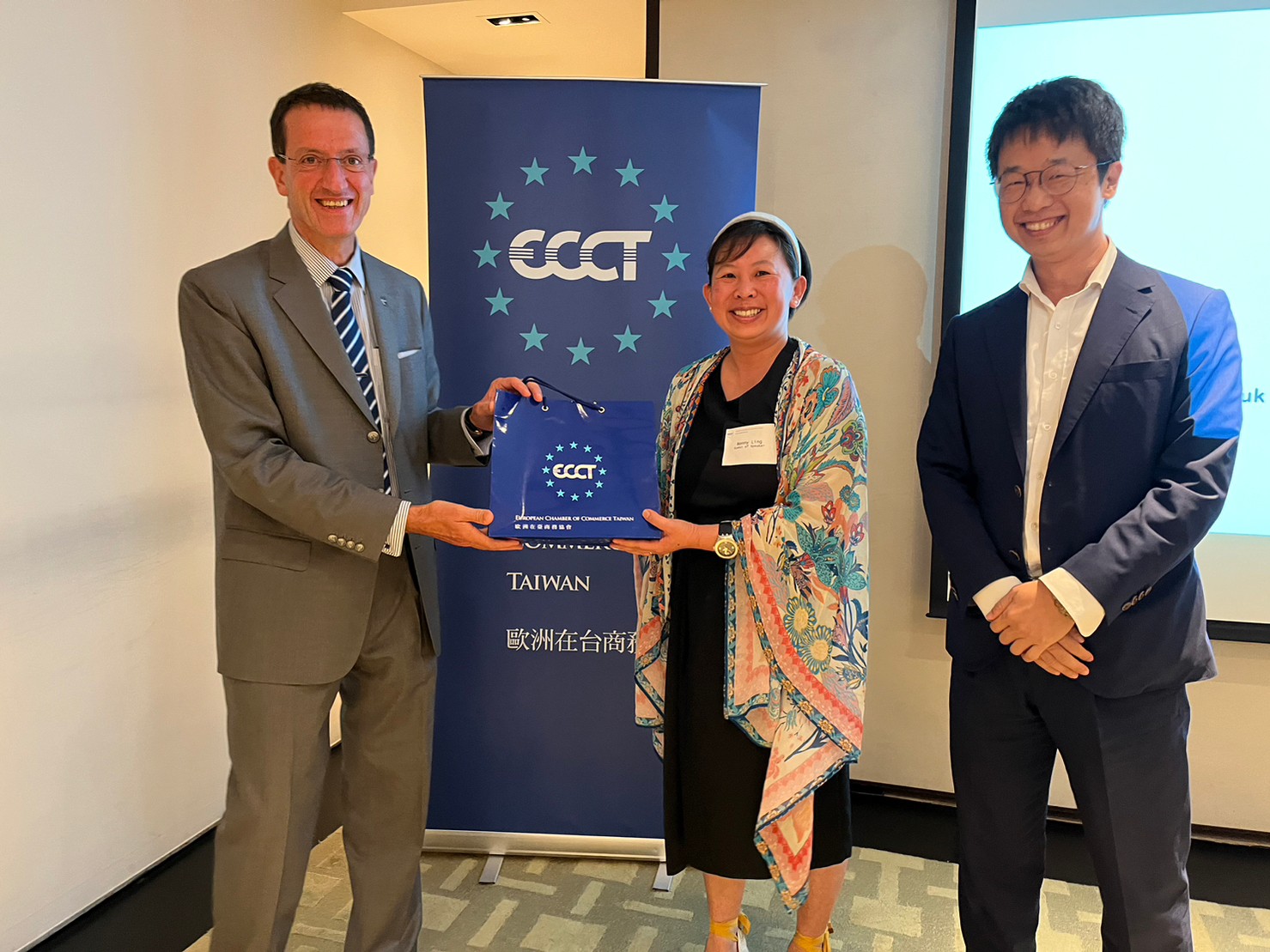Responsible recruitment of migrant workers

The ECCT's Human Resources committee arranged a lunch to discuss the plight of migrant workers in Taiwan featuring guest speaker Dr Bonny Ling, Executive Director of Work Better Innovations.
According to statistics from Taiwan's Ministry of Labor, there are currently more than 700,000 migrant workers, most of which come from four countries: Indonesia, the Philippines, Thailand and Vietnam. The current number is similar to what it was prior to the coronavirus pandemic. Most of the workers are engaged in jobs that are regarded as dangerous, dirty and difficult, the kind of jobs that most Taiwanese don't want.
While there are some exceptions, the vast majority of workers from Vietnam, Thailand and the Philippines work in industry (manufacturing, construction, agriculture/forestry, fishing and animal husbandry) while about 70% of workers from Indonesia work in institutional welfare or domestic settings (such as caregivers and domestic helpers).
The nature of their work puts migrant workers at high risk of dangers such as industrial accidents and fires. The speaker cited several recent examples. But workers are also vulnerable to abuse and exploitation. One of the most prevalent risks of forced labour concerns how migrant workers are recruited for cross-border employment, for they frequently pay very high fees to labour brokers or agencies in their home countries for connecting them to job opportunities abroad. Fees incurred by the migrant workers may cover costs associated with their job placement, plus related costs (such as job training and medical examination) and other illegitimate and undisclosed costs. These fees add up and present serious risks of debt bondage and exploitation, including forced labour and human trafficking.
The speaker cited an article in the Diplomat explaining that Vietnamese workers may pay the equivalent of three to four years' salary to secure a job and pay (up to US$10,000 if you include recruitment fees and other costs), many of which are suppliers to well-known multinational corporations, operating in Japan and Taiwan. Taiwan law also allows employers to deduct monthly service fees from workers' pay. This is perpetuating a two-tier recruitment system. University graduates and other white collar workers would never pay to get a job but migrant labourers may have no other choice. The speaker made the point that workers that are indebted are less likely to report abuse. They are also unlikely to ever get pay increases.
Debt bondage is just one indicator of forced labour. The International Labour Organization (ILO) also cites the following: Abuse of vulnerability, deception, restriction of movement, isolation, physical and sexual violence, intimidation and threats, retention of identity documents, withholding of wages, abusive working and living conditions and excessive overtime. Analysis by Sedex based on 100,000 audits of multinational corporations found that 36% of their audits identified multiple indicators of forced labour while 64% of audits found at least one indicator. While Taiwan's fishing industry is notorious for its abysmal treatment of labourers, other industries in Taiwan, including electronics suppliers have also come under scrutiny.
There is increasing pressure being placed on the government to address the situation. Several foreign governments have called on the government to ban the collection of migrant worker service fees. The EU plans to ban products made from forced labour while Germany already has a law in place to prohibit forced labour in companies' supply chains. It is therefore in Taiwan's best interests to proactively make changes to its laws and enforcement rather than being forced to after the fact.
One important legal remedy is to amend the definition of forced labour to include both menace of penalty examples (such as threats of violence, debt bondage and restrictions of wages) to involuntary examples (without the consent of the worker, such as requirements to perform a different job from that specified during recruitment, overtime or hazardous work not previously agreed, work with substandard or no wages, work under degrading living conditions linked to the job, work for other employers than agreed, work for a longer time than agreed or work with no or limited freedom to terminate the employment contract, among others).
But Taiwan should really go further if it wants to improve its international standing as well as address the future worker shortage that will result from a shrinking population. After addressing the recruitment fee issue, the next step should be to improve contractual conditions for workers and allow job mobility.
Meanwhile, many multinational corporations have already pledged to voluntarily take action, starting with signing the Responsible Recruitment Register and following the employer pays principle which states that no worker should pay for a job and that the costs of recruitment should be borne by the employer, not the employee. So far, only two Taiwanese companies (Pou Chen and TSMC) have signed the register.
